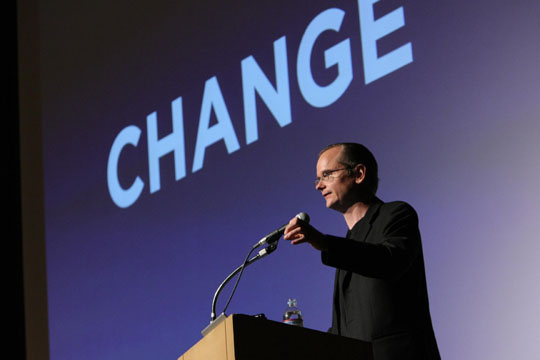On April 17, the district court of Stockholm issued its verdict in the copyright infringement case of the torrent tracking Web site The Pirate Bay, whose managers and another associate were accused of facilitating the illegal downloading of music, movie and video-game files. The four defendants were found guilty of accessory to crime against copyright law and sentenced to one year in prison each and a fine of 30 million kronor (equivalent to about ¥360 million on that date).
The case is only the latest incident in what Stanford University law professor and copyright activist Lawrence Lessig describes as the "copyright wars," the entertainment industry's assault on digital file sharing, which has included lawsuits against university students and grandmothers in addition to companies such as The Pirate Bay and Napster. The author of numerous books outlining the Internet's relationship with law, culture and commerce, Lessig is among a vanguard of intellectuals considering the societal implications of what was once mainly a technical issue.
Speaking with The Japan Times in Tokyo on May 1, prior to giving a presentation on the ideas behind his latest book, "Remix: Making Art and Commerce Thrive in the Hybrid Economy," as part of the Mori Art Museum's MAM Art Course lecture series, he was not surprised by the Pirate Bay decision, commenting that "it certainly flows from the law's conception of how to regulate content."


















With your current subscription plan you can comment on stories. However, before writing your first comment, please create a display name in the Profile section of your subscriber account page.